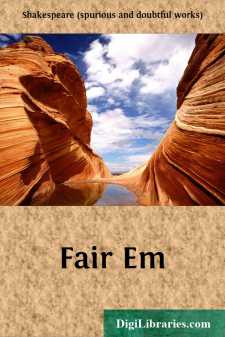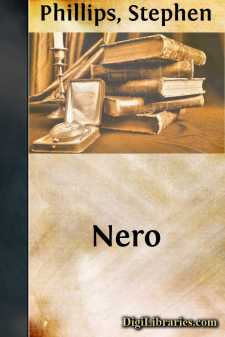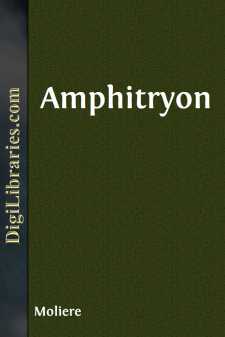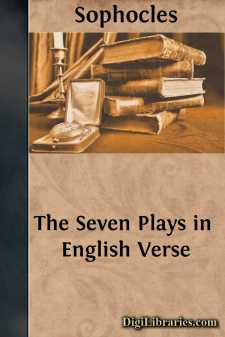Drama
- American 43
- Ancient, Classical & Medieval
- Asian 7
- Caribbean & Latin American 2
- Continental European 50
- English, Irish, Scottish, Welsh 91
- General 105
- Middle Eastern 1
- Religious & Liturgical 1
- Shakespeare 1
Ancient, Classical & Medieval Books
Sort by:
by:
Thomas Hardy
The Spectacle here presented in the likeness of a Drama is concerned with the Great Historical Calamity, or Clash of Peoples, artificially brought about some hundred years ago. The choice of such a subject was mainly due to three accidents of locality. It chanced that the writer was familiar with a part of England that lay within hail of the watering-place in which King George the Third had his...
more...
ACT I. [Enter William the Conqueror; Marques Lubeck, with a picture;Mountney; Manville; Valingford; and Duke Dirot.] MARQUES.What means fair Britain's mighty ConquerorSo suddenly to cast away his staff,And all in passion to forsake the tylt? D. DIROT.My Lord, this triumph we solemnise hereIs of mere love to your increasing joys,Only expecting cheerful looks for all;What sudden pangs than moves...
more...
by:
Stephen Phillips
ACT I SCENE.—The scene is in the Great Hall in the Palace of the Caesars. At the back are steps leading to a platform with balustrade opening on the air, and beyond, a view of the city. [On the right of the stage is a cedarn couch on which CLAUDIUS is uneasily sleeping. On the right is a door communicating with the inner apartments. On the left a door communicating with the outer halls. [XENOPHON is...
more...
ACT I. SCENE I. [1st Cut.] [2nd Grooves.] A Lane near a Village. Afternoon. Enter ARTHUR WALTON and WILLIAM, R.S.E. Arthur. Give me your arm, my feet tread heavily;The sameness of this scene doth pierce my heartWith thronging recollections of the past.There is nought chang'd—and what a world of care,Of sorrow, passion, pleasure have I known,Since but a natural part of this was I,Whose voice is...
more...
by:
Alexander Dyce
THE TRAGICAL HISTORY OF DOCTOR FAUSTUS FROM THE QUARTO OF 1604. Enter CHORUS. CHORUS. Not marching now in fields of Thrasymene,Where Mars did mate the Carthaginians;Nor sporting in the dalliance of love,In courts of kings where state is overturn'd;Nor in the pomp of proud audacious deeds,Intends our Muse to vaunt her heavenly verse:Only this, gentlemen,—we must performThe form of Faustus'...
more...
by:
J. Donkersley
PREFACE. Racine, the author of Athalie (Athaliah), flourished in the latter half of the 17th century. At his appearance, Corneille, the great French Dramatist, was in the full splendour of his fame, whose rival he was afterwards recognised to be. Athalie is a Tragedy in rhyme, consisting of six Iambic feet, similar to the Alexandrine verse found occasionally in our English poets at the termination of a...
more...
by:
William Dunlap
WILLIAM DUNLAP: (1766-1839) The life of William Dunlap is full of colour and variety. Upon his shoulders very largely rests the responsibility for whatever knowledge we have of the atmosphere of the early theatre in America, and of the personalities of the players. For, as a boy, his father being a Loyalist, there is no doubt that young William used to frequent the play-house of the Red Coats, and we...
more...
CAST CAPTAIN NATHAN HALECAPTAIN WILLIAM HULLGENERAL WASHINGTONBOS'NLIEUTENANT PONDSIMON CARTERLIEUTENANT DREW [BRITISH]MRS. CHICHESTERCAPTAIN MONTRESSORPROVOST MARSHAL CUNNINGHAM We present here the story of the famous Revolutionary hero and martyr, Nathan Hale. For the first scene of our sketch, let us go to General Washington's headquarters in New York City. It is early September of the...
more...
by:
Moliere
PROLOGUE MERCURY, on a cloud; NIGHT, in a chariot drawn by two horses MERC. Wait! Gentle Night; deign to stay awhile: Some help is needed from you. I have two words to say to you from Jupiter. NIGHT. Ah! Ah! It is you, Seigneur Mercury! Who would have thought of you here, in that position? MERC. Well, feeling tired, and not being able to fulfil the different duties Jupiter ordered me, I quietly sat...
more...
by:
Sophocles
PREFACE In 1869, having read the Antigone with a pupil who at the time had a passion for the stage, I was led to attempt a metrical version of the Antigone, and, by and by, of the Electra and Trachiniae. I had the satisfaction of seeing this last very beautifully produced by an amateur company in Scotland in 1877; when Mrs. Fleeming Jenkin may be said to have ‘created’ the part of Dêanira. Thus...
more...











